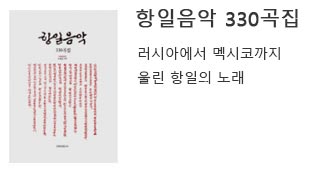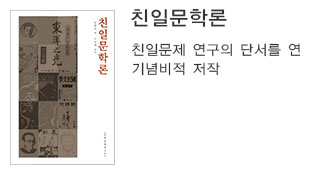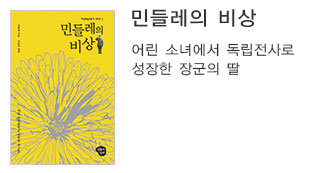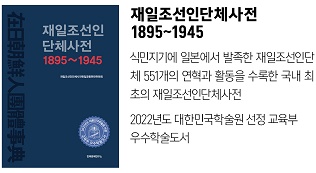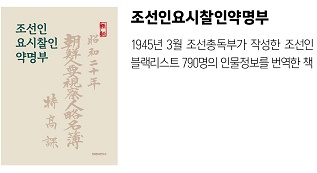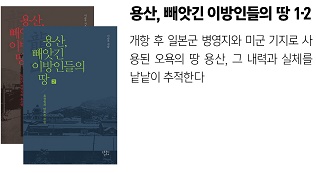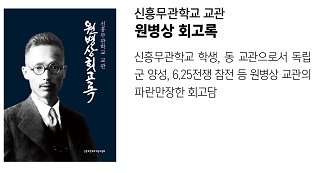
▲ 뉴욕타임즈 6월 22일자 사설 [원문보기]
“일본의 역사 감추기, 2차세계대전 성노예에 대한 사과 다시 이슈화”
Japan’s Historical Blinders, Apology for World War II Sex Slaves Is Again at Issue
6월 20일 일본정부가 이른바 <고노담화 검증보고서: “위안부문제에 관해 일한 간 주고받은 세부사항–고노담화 작성부터 아시아여성기금까지”>를 공표한 후 이해 당사국인 한국과 중국은 물론 미국도 부정적인 반응을 감추지 않고 있다. <고노담화 검증보고서>는 위안부 문제에 대한 일본군의 관여와 강제성을 인정한 1993년 8월의 “고노담화”를 한일 간 정치적 타협의 결과로 간주하는 내용을 담고 있어 사실상 담화를 부인하는 것과 마찬가지라는 비판을 받고 있다. 미국은 고노담화 검증작업에 대해서 우려를 표명한 것과 달리, 전수방위를 폐기하고 집단적 자위권을 인정한 헌법 재해석은 지지하는 이율배반적 태도를 보이고 있다. 6월 23일자 뉴욕타임즈 사설은 미국의 동북아전략과 현 정세하의 딜레마가 무엇인지를 짐작하게 해준다. 이를 전문 번역하여 소개한다. – 편집자
아시아 안보를 위해 건설적인 한일관계가 어느 때보다 긴요한 시점에, 미국의 동맹국인 두 나라는 어려운 역사를 극복하지 못하고 있다. 유감스럽게도 금요일 제2차세계대전 당시 성노예에 대한 일본정부의 보고서가 발표되어 이런 상태는 조만간 바뀔 것 같지는 않다.
아베 신조 총리는 이 보고서의 발표로 1993년 고노담화에 대한 책무를 재확인했다. 고노담화는 한국과 다른 나라들에서 수많은 여성들이 일본병사에게 성을 제공할 것을 강요당한 점을 처음으로 인정하고 이러한 잔학행위에 대해 사죄한 것이었다. 하지만 이 보고서가 한국과의 긴장 완화를 의도한 것이라면 실패작이다. 이 보고서는 1993년 고노담화의 정확성에 의문을 불러일으키는 것이기 때문이다. 이 보고서는 고노담화가 한국과의 치열한 막후협상의 결과로 나온 것이라고 하며, 확실한 증거에 바탕을 둔 것인지의 여부를 묻는 것 같다.
일본 밖의 많은 역사가들은 일본군이 여성들에게 위안소에서 일하게끔 강요한 점에 동의하는데, 아직도 일본의 국가주의자들은 이 여성들이 매춘부였으며 당국에 의해 노예상태를 강요당한 것은 아니라는 주장을 계속하고 있다.
우선 아베 총리는 보고서를 정리하면서 극우파 정치집단에 영합함으로써 이러한 전쟁범죄 피해자들을 부당하게 대우하고 자국에 손해를 끼치고 있다. 그는 2006년부터 2007년까지 첫 총리 임기 때 국가주의자들의 입장을 지지하였고, 2012년 말에 시작된 두 번째 재임기간에 고노담화를 수정할지도 모른다는 조짐을 보였다. 3월에 아베 총리가 여성들의 고통을 생각하면 역대 수상처럼 “마음이 아프다“고 강조한 것을 포함하여 그 후에 잇따른 여러 발언은 한국인의 우려를 전혀 누그러뜨리지 못했다. 1993년 고노담화의 초안이 작성될 때 한일양국 정부가 협의한 사실을 밝힌 이번 보고서는 한국인들에게 일본이 고노담화에 대해 진정성이 없었음을 보여주고 있다. 국가간 관계에서 협의는 매우 중요한 것이며, 민감한 사안에 대해서는 특히 그러한데, 회담이 부정적으로 이루어졌다고 밝히는 것은 비뚤어진 행동이다.
일본의 국가주의자들은 의심할 나위 없이 일본정부가 고노담화를 철회하도록 압력을 행사하는 데 이 검증보고서를 이용할 것이다. 지금이야말로 아베 총리는 자국과 세계에 ‘부인하는 사람들’은 틀렸다고 명확히 해야 할 때이다. 그가 계속해서 그러한 정치적 일파와 어울린다면 일본이 (아시아)지역에서 지도적 역할을 수행하는 것을 방해할 것이다. 미국이 아시아에서 늘어나는 중국의 공격적 행동에 대처하기 위해 합리적인 전략을 만들어가는 것은 한국과 일본의 협력에 크게 달려 있다.
특히 지금은 일본도 전시 성노예 문제에 대해 의심할 여지를 남겨두어서는 곤란한 때다. 국제사회는 무력분쟁에서의 성폭력에 초점을 맞춰 유념하고 있다. 각국정부와 인권단체는 위반자를 고발하고 피해자를 돌보도록 요구하고 있다.
이번 달 런던에서 이 문제에 대한 회의가 열렸는데(6월 10일 개최된 분쟁지역 성폭력 종식을 위한 국제회의-Global Summit to End Sexual Violence in Conflict-로 144국이 참가함–역주), 일본 대표로 파견된 아베 씨의 동생인 기시 노부오는 “성폭력은 범죄다. 가해자가 처벌받지 않는 문화를 배제하고 우리의 사고방식을 바꿔나가는 것이 중요하다”고 말했다. 민주주의 국가이며 세계 제3의 경제대국인 일본이 과거를 바꿔 쓰려는 것처럼 보이는 일이 있어서는 안 된다.
Japan’s Historical Blinders
Apology for World War II Sex Slaves Is Again at Issue
At a time when constructive relations between Japan and South Korea are more important than ever to Asian security, the two countries, allies of the United States, have been unable to put a difficult history behind them. Unfortunately, that seems unlikely to change soon given the release on Friday of a Japanese report on World War II sex slaves.
Prime Minister Shinzo Abe used the report’s release to reaffirm Japan’s commitment to a 1993 statement admitting for the first time that thousands of women from Korea and other countries had been coerced into providing sex to Japanese soldiers and apologizing for those atrocities. But if this was supposed to calm tensions with South Korea it misfired, because the report appeared to raise doubts about the accuracy of the 1993 apology. It said the apology resulted from intense behind-the-scenes negotiations with South Korea and seemed to question whether it was based on solid evidence.
Many historians outside of Japan agree that the Japanese military forced women to work in brothels, yet Japanese nationalists continue to insist the women were prostitutes and were not forced into servitude by the authorities.
Mr. Abe has done an injustice to the victims of this wartime crime and hurt his country by pandering to a narrow nationalist political fringe in ordering up the report in the first place. During his first time as prime minister, in 2006 and 2007, he endorsed the nationalists’ position; during his second tenure, which began in late 2012, he signaled that he might seek to revise the apology. Subsequent statements, including Mr. Abe’s insistence in March that he shared his predecessors’ “heartache” over the women’s plight, have done little to calm South Korean apprehensions. For South Koreans the report ? by revealing the consultations between the two governments when the 1993 statement was being drafted ? shows that Japan has never been sincere about the apology. Consultations are crucial for relations between countries, especially on sensitive issues, and it is perverse that talks would be cast in a negative light.
Japanese nationalists will undoubtedly use the report to push the government to retract the apology. It’s time Mr. Abe made it clear to his country and to the world that the “deniers” are wrong. His continued willingness to play to that political fringe is interfering with Japan’s ability to carry on its leading role in the region. Any reasonable American strategy for managing China’s increasingly aggressive actions in Asia depends heavily on cooperation with Japan and South Korea.
This is also an especially awkward time for Japan to leave any doubts about the issue of its wartime sex slaves. There has been increasing and proper attention focused by the international community on sexual violence in armed conflict; governments and human rights groups have demanded that offenders be prosecuted and victims cared for.
At a conference on that issue in London this month, the head of the Japanese delegation, Nobuo Kishi, Mr. Abe’s brother, said: “Sexual violence is a crime. It is important to eliminate the culture of impunity against the perpetrators and to change our mind-sets.” As a democracy and the world’s third-largest economy, Japan cannot be seen as trying to rewrite its past.
The New York Times June 23, 2014



![img-top-introduce[1]](/wp-content/uploads/2016/02/img-top-news1.png)

